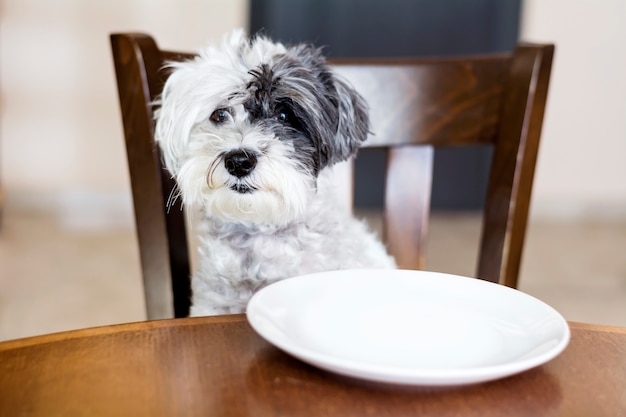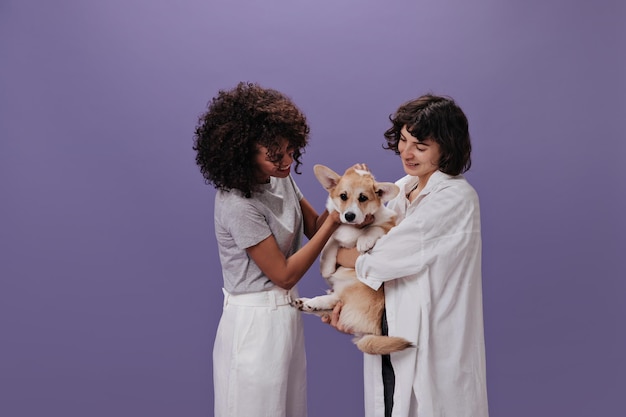What Sudden Appetite Changes in Pets May Mean


What Sudden Appetite Changes in Pets May Mean
If you have ever noticed your pet turning away from their food bowl or suddenly begging for more treats than usual, you are not alone. Sudden appetite change in pets can be concerning for any pet owner, and it is often a signal that something more is going on beneath the surface. At Urbana Veterinary Clinic, located at 985 Norwood Ave, Urbana, OH 43078, our experienced veterinary team understands how distressing these changes can be. We are committed to helping families in Urbana and surrounding communities understand what sudden shifts in appetite might mean for their pets, and how timely care can make all the difference.
In this post, we will explore the common signs that indicate an appetite change in your dog or cat, discuss potential causes, outline how our veterinary team approaches pet eating problems diagnosis, and explain the importance of seeking professional help promptly. Whether you are searching for “vet near me” or need guidance on veterinary diagnostics in Urbana, our team is here to provide answers and reassurance. For those interested in proactive wellness, our comprehensive pet exam services are designed to catch changes like these early and keep your pet healthy year-round.
Recognizing Sudden Appetite Changes in Pets
It can be easy to overlook a skipped meal here or there, especially if your pet occasionally turns up their nose at a new food. However, persistent or dramatic changes in how much your pet eats are worth noting. These shifts may involve your pet refusing food altogether, eating much less than usual, or, conversely, suddenly eating more than they typically do. Key symptoms include a pet hiding at mealtimes, sniffing food but walking away, vomiting after eating, or showing increased interest in eating non-food items. Additionally, you might notice changes in weight, lethargy, excessive drooling, or vocalizing at mealtime. Other signs are a pet who becomes unusually protective of their food, or visible discomfort when chewing or swallowing.
Pay attention to trends over several days, as a single missed meal is less worrisome than ongoing appetite loss or a sudden surge in hunger. For example, if your usually food-loving Labrador in Urbana skips breakfast but then eats dinner with gusto, it might not be cause for alarm. However, if your indoor cat consistently ignores her food for two days or starts raiding the pantry, it is time to take notice. Recognizing these changes early is the first step in protecting your pet’s health and getting ahead of more serious concerns.
Common Causes of Sudden Appetite Change in Pets
When a pet’s appetite changes unexpectedly, there can be a range of reasons behind the shift. Some causes are relatively mild, while others may signal a need for immediate veterinary attention. Physical health issues often play a leading role. Dental pain, mouth injuries, or gum disease can make eating uncomfortable, causing your pet to eat less or avoid food. Gastrointestinal problems such as nausea, constipation, or intestinal blockages can also result in appetite loss. Additionally, conditions like diabetes, thyroid disease, kidney or liver disorders, and infections might cause either increased or decreased hunger.
Behavioral and environmental factors can be just as influential. Stress from a new household member, recent moves, loud noises, or changes in routine may all lead to appetite fluctuations. Some pets are particularly sensitive to shifts in the home environment, and their eating habits can reflect this stress. Food-related factors such as a change in diet, spoiled food, or an unpalatable new formula may also cause your pet to refuse meals.
In Urbana and surrounding communities, seasonal changes can sometimes impact pets’ appetites too. Hot weather may discourage eating, while winter’s chill can increase caloric needs. It is important to note that sudden, dramatic increases in appetite can occasionally be linked to conditions like diabetes or hyperthyroidism, especially in older pets. For pet owners searching for “pet diagnostics near me,” understanding these possible causes is a crucial step toward early intervention.
How Urbana Veterinary Clinic Diagnoses and Treats Appetite Changes
When you schedule an appointment at Urbana Veterinary Clinic for sudden appetite change in pets, our veterinary professionals begin with a thorough assessment. A detailed history is the foundation of our approach, so we will ask about your pet’s eating patterns, recent changes, lifestyle, and any other symptoms you have noticed. This helps us tailor our examination and decide which diagnostic tests are most appropriate.
A comprehensive physical examination allows our veterinarians to check for dental problems, abdominal discomfort, dehydration, and other visible signs of illness. Depending on the findings, we may recommend utilizing our pet diagnostic laboratory services in Urbana to further investigate underlying causes. These tests can include bloodwork, urinalysis, fecal analysis, or imaging such as digital radiology or ultrasound. Through these advanced diagnostics, we can identify issues like organ dysfunction, infections, hormonal imbalances, and even early signs of cancer.
Treatment approaches vary depending on the diagnosis. Dental procedures such as cleanings or extractions may be necessary if oral pain is present. For gastrointestinal issues, medication and dietary management are often effective. If a chronic disease like diabetes is uncovered, our veterinary team will guide you through ongoing management plans, including medication and nutrition adjustments. We also offer supportive therapies such as photobiomodulation (PBM) and acupuncture that can support recovery and comfort in some cases.
Throughout this process, communication remains a priority. We believe that empowering pet owners with information and support leads to better outcomes. Our goal is to restore your pet’s appetite and overall well-being, while strengthening the lifelong bond you share.
Supporting Your Pet at Home: Prevention and Early Action
While some appetite changes are unavoidable, many can be minimized with attentive home care and regular veterinary checkups. Monitoring your pet’s eating habits and being aware of subtle changes is one of the most powerful tools you have. Steps for prevention include offering a consistent, high-quality diet, keeping feeding routines predictable, and ensuring your pet’s food and water bowls are always clean.
Paying attention to dental health is also crucial, as untreated dental disease is a common culprit in appetite loss. Regular dental cleanings, both at home and with professional help, can keep your pet comfortable and willing to eat. Keeping stress levels low by providing a stable environment, plenty of enrichment, and gradual introductions to new situations may help sensitive pets avoid stress-related appetite changes.
Scheduling routine wellness examinations at Urbana Veterinary Clinic is another important step. These visits allow our veterinarians to detect health concerns early, including those that might not yet show obvious symptoms. For pet owners looking for “pet diagnostics Urbana” or “veterinary diagnostics in Urbana,” our clinic offers a full range of preventive and diagnostic services tailored to your pet’s needs.
When to Seek Veterinary Care for Appetite Changes
Knowing when to seek help can be the difference between a simple fix and a more serious health crisis. It is essential to contact our veterinary team if your pet refuses food for more than 24 hours, shows ongoing vomiting or diarrhea, experiences rapid weight loss, or appears lethargic and unwell. Additional warning signs include visible pain when eating, sudden changes in thirst, or any signs of dehydration such as sunken eyes or dry gums. If your pet is a senior, has an existing medical condition, or is very young, prompt attention to appetite changes is even more important.
Owners searching for “quality veterinary services near me” often want reassurance that they are taking the right steps for their companion. At Urbana Veterinary Clinic, we encourage you to schedule an appointment as soon as you notice any persistent changes in your pet’s eating habits. Our veterinary professionals are equipped to provide thorough pet diagnostics near me and compassionate care so you never have to navigate these concerns alone.
Supporting Your Pet’s Health: Take the Next Steps
Sudden appetite change in pets can feel alarming, but with attentive monitoring and timely veterinary care, most eating problems can be addressed successfully. Early recognition of symptoms, an understanding of possible causes, and proactive involvement from a trusted veterinary team all play vital roles in keeping your pet healthy. If you notice your dog or cat experiencing appetite changes, do not wait for the problem to resolve on its own. Our team at Urbana Veterinary Clinic is here to help you every step of the way.
To schedule a comprehensive examination or learn more about our services, call (937) 653-7326 or visit us at 985 Norwood Ave, Urbana, OH 43078. For more information on how we approach pet eating problems diagnosis, explore our full overview of veterinary medical services. We are proud to serve Urbana and surrounding communities, providing the kind of attentive, compassionate care you expect from the best veterinarian near me. Your pet’s well-being is always our top priority, and together, we can help them enjoy a happier, healthier life.
This content is intended for informational purposes only and does not substitute for professional veterinary advice. Always consult your veterinarian for personalized recommendations regarding your pet’s health.




















